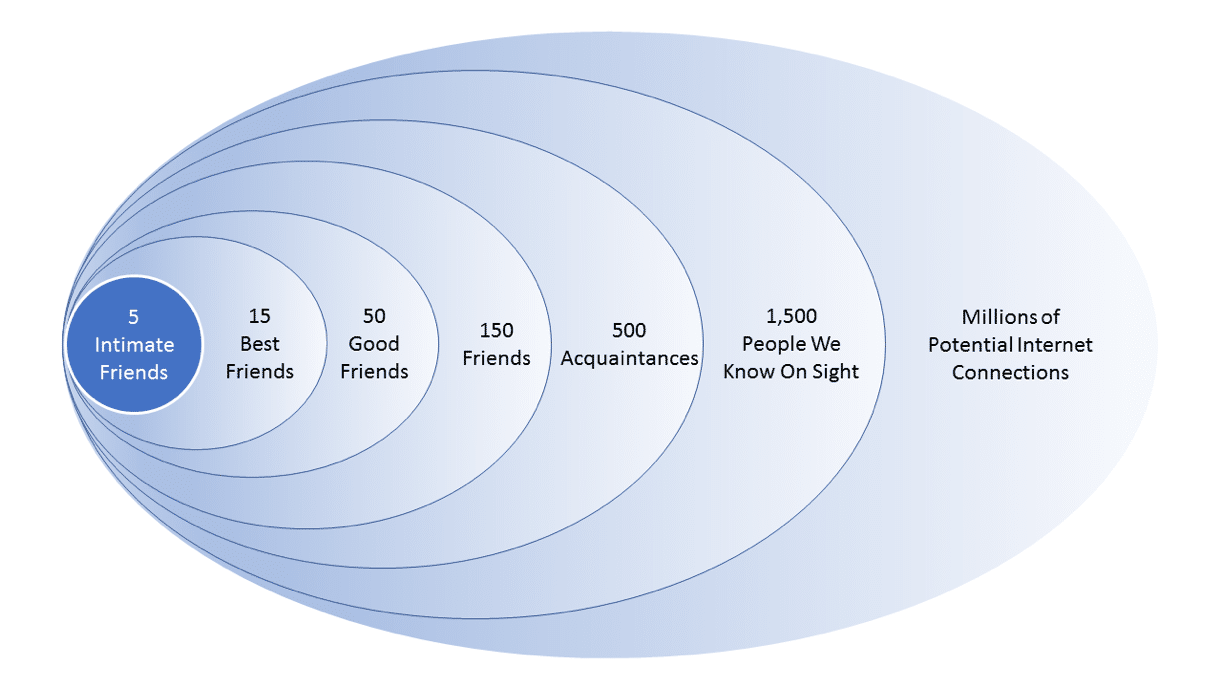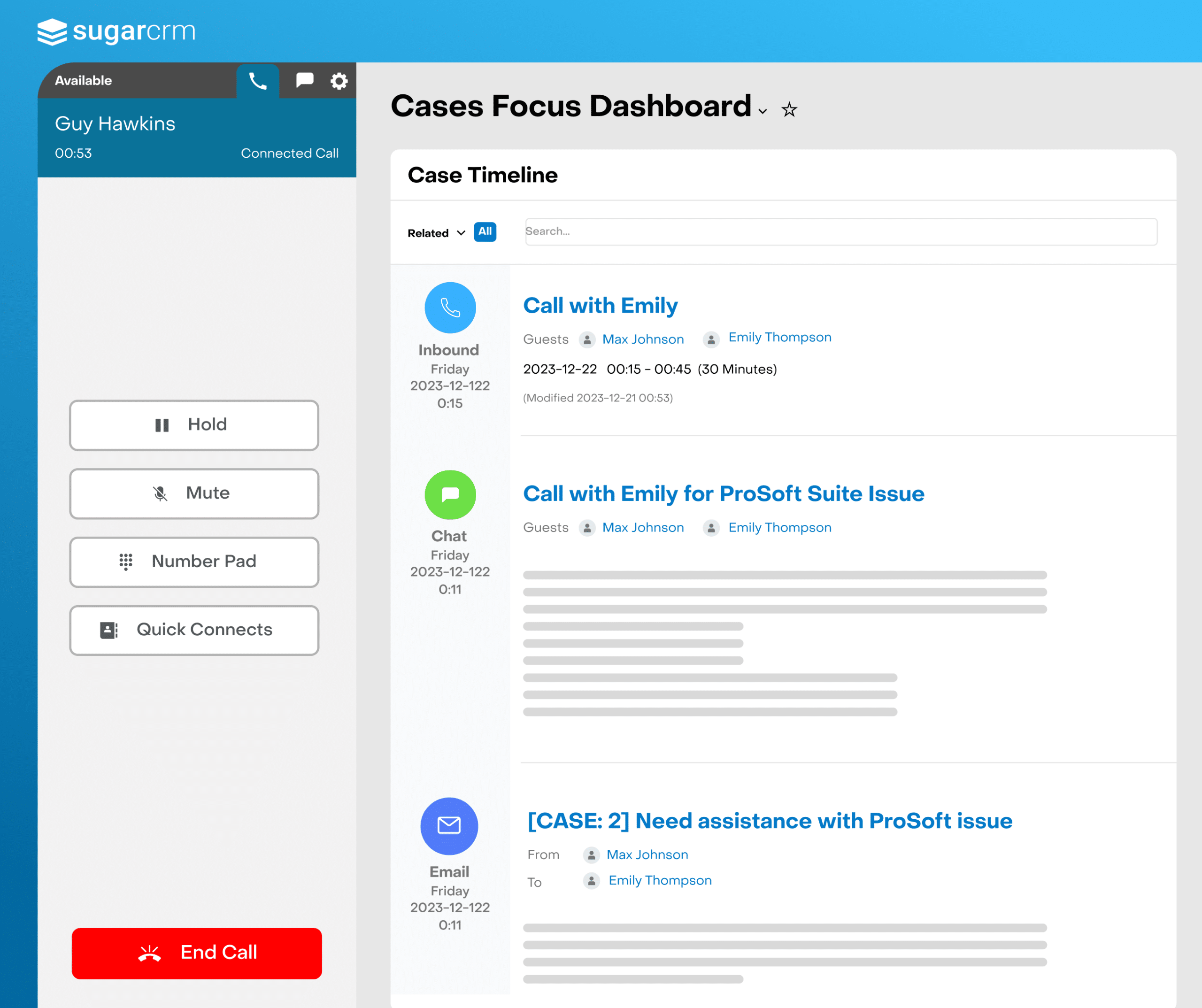Getting to Know Your 500+ Close Friends on Facebook
With the advent of social networks, our ability to maintain connections with people has grown by orders of magnitude. As one friend of mine put it, “I now have more friends from high school on Facebook than I had in high school.” According to a study of LinkedIn users by Statista, 28% of LinkedIn users have 1,000 or more connections. Fifty-five percent have 500 or more connections. On Facebook, the average user has 338 friends. Fifteen percent of Facebook users have 500 or more friends. Although Facebook has a limit of 5,000 friends, it also has a concept of Facebook pages that can have an unlimited number of followers, much like Twitter Followers. Real Madrid forward Cristiano Ronaldo tops Facebook with over 204 million followers.
But is there real value in having that many “friends?” Some of you may note that with over 10,000 connections on LinkedIn, I’m personally guilty as charged. Being in the CRM business, we also see this with our customers at SugarCRM. There’s an expectation that social media sites enable us to broaden our network, but is that really true? What is our true ability to manage larger personal networks?
According to Robin Dunbar, an Oxford University anthropologist who studies social networks, any grouping larger than about 150 starts to strain the cognitive capacity of the human brain. Basing this figure (dubbed “Dunbar’s Number” in the 1990s) on research into the brains and social habits of primates, Dunbar argues that we cannot effectively manage relationships with many hundreds of people. This goes for real-world friends as well as online connections.
Human relationships are layered in ever larger circles from closest to furthest. “The 150 layer is the important one: this defines the people you have real reciprocated relationships with, those where you feel obligations and would willingly do favors,” he said.

The downside to having more connections is that keeping up an actual friendship requires resources. “The amount of social capital you have is pretty fixed,” Dunbar said. “It involves time investment. If you garner connections with more people, you end up distributing your fixed amount of social capital (time) more thinly so the average capital per person is lower.” If we’re busy putting in the effort, however minimal, to “like” and comment and interact with an ever-widening network, we have less time and capacity left for our closer groups.
But what if it took us less time to connect with people on social media? What if we had help, particularly with the outer layers of our friendship circles. Those outer layers, 500 people and beyond, are really just acquaintances. They’re people we have decided we want to stay in touch with. But, they’re probably not people we’d expect to be there for us in a time of personal crises. Today’s social media platforms are a relatively inefficient way to stay connected to those people. Why? Because platforms like Facebook and Twitter put the onus on us to manage the relationship. For example, we need to monitor those people for life events that are relevant. We probably don’t care what they have for breakfast. But, if they’re a business acquaintance, we probably care if they change jobs.
Queue Relationship Intelligence. The promise of Relationship Intelligence is having a smart assistant automatically gather and organize data that helps you manage your extended network of contacts. Relationship Intelligence alerts you to relevant events related to your network. A business contact changing jobs is an obvious example of something you’d like to know. Relationship intelligence also gives you valuable business insights. People tell you the business content that they value by what they follow, like and respond to on social media. Today good sales development reps take the time to manually figure out what their targets care about. Imagine Relationship Intelligence telling you the case study or white paper that a prospect is most likely to care about. Or, the upcoming webinar that’s on exactly the topic they’ve been liking on Twitter. Relationship Intelligence applies to existing customers as well. Imagine being able to send a short list of the sessions from your upcoming user conference that will entice an existing customer to attend. You can build your relationship with that customer, and grow your business with them.
But what about other key life events? For example, news about a child’s graduation, buying a new house or car, or even a new puppy are events that are relevant to them as an individual, and help you connect with them on a more personal basis. Relationship intelligence can tell you that someone is a huge Notre Dame fan. When (yes, I said ‘when’) the Fighting Irish beat USC, and you haven’t talked to that person in a year, drop them a congratulatory note. Can you name the prominent CRM thought leader who is a diehard Yankees fan? Maybe a little good-natured ribbing is in order the next time the Yankees lose a series to the Red Sox.
While much of this may sound personal, it’s also good business. After all, business is about people connecting with people. Think about great sales people that you’ve known. You know, the person who always managed to drop their customers a card at the holidays or on their birthday; always remembered what grade their kids were in; and always seemed to have tickets to exactly the right sporting event. That person worked hard to build great relationships with their customers. Relationship Intelligence brings together the power of artificial Intelligence with the wealth of social media data on the Internet to enable anyone to have that same level of understanding of their contacts.

